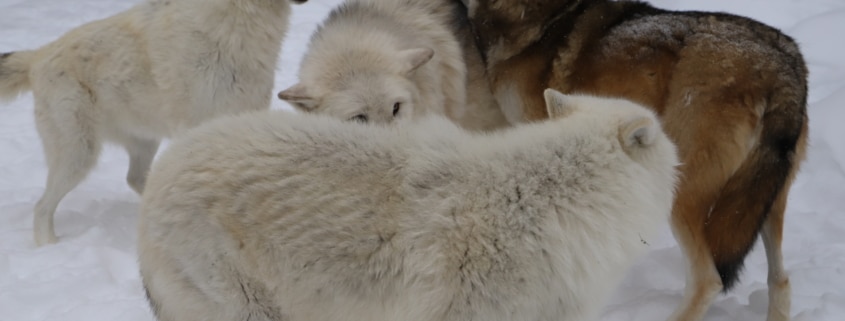Jan. 19, 2020
As we reported last week, wolf care staff have been diligent in monitoring Boltz as he chose to isolate himself in the den. We had been hand delivering food to him, watching for his use of the heated water source close to the den and added another layer of hay in the den. In some sense, this densite is prime real estate in the Exhibit, but not if you have anxiety that keeps you isolated from the pack. We are happy to report that on Saturday January 18th’s “What’s for Dinner?” program, staff arrived to find all 4 wolves at the gate. Our management tactics of working on Axel’s dominance over the last week was enough to give Boltz time to build his confidence. This is not the first time we had confidence issues with Boltz. If you follow our wolf logs, you may recall we have some issues with flying insects that can result in the same response from Boltz during the summer months. Why is Boltz so sensitive? In 2012 when we adopted Boltz, he was almost 30 days of age before we met him. While he was socialized to humans at his source facility, he didn’t have the broad socialization process to life at a high traffic public facility, so stress influences him differently than our other wolves. Due to the neophobic nature of wolves (fearful of new things), the Center’s management policy prefers a pup adoption during the neonate stage of pup development between 10 -14 days of age. The wolf care team is a group of dedicated, well-trained individuals that will work on the 2020 pup’s exposure to new stimuli with a goal of positive conditioning. Our priority is to develop social alliances between the pups and the adults as well as the humans that will care for them throughout their lives. The playful antics of pups can create a positive distraction during stressful times. We definitely look forwards to the influence of Boltz’s future packmates.




